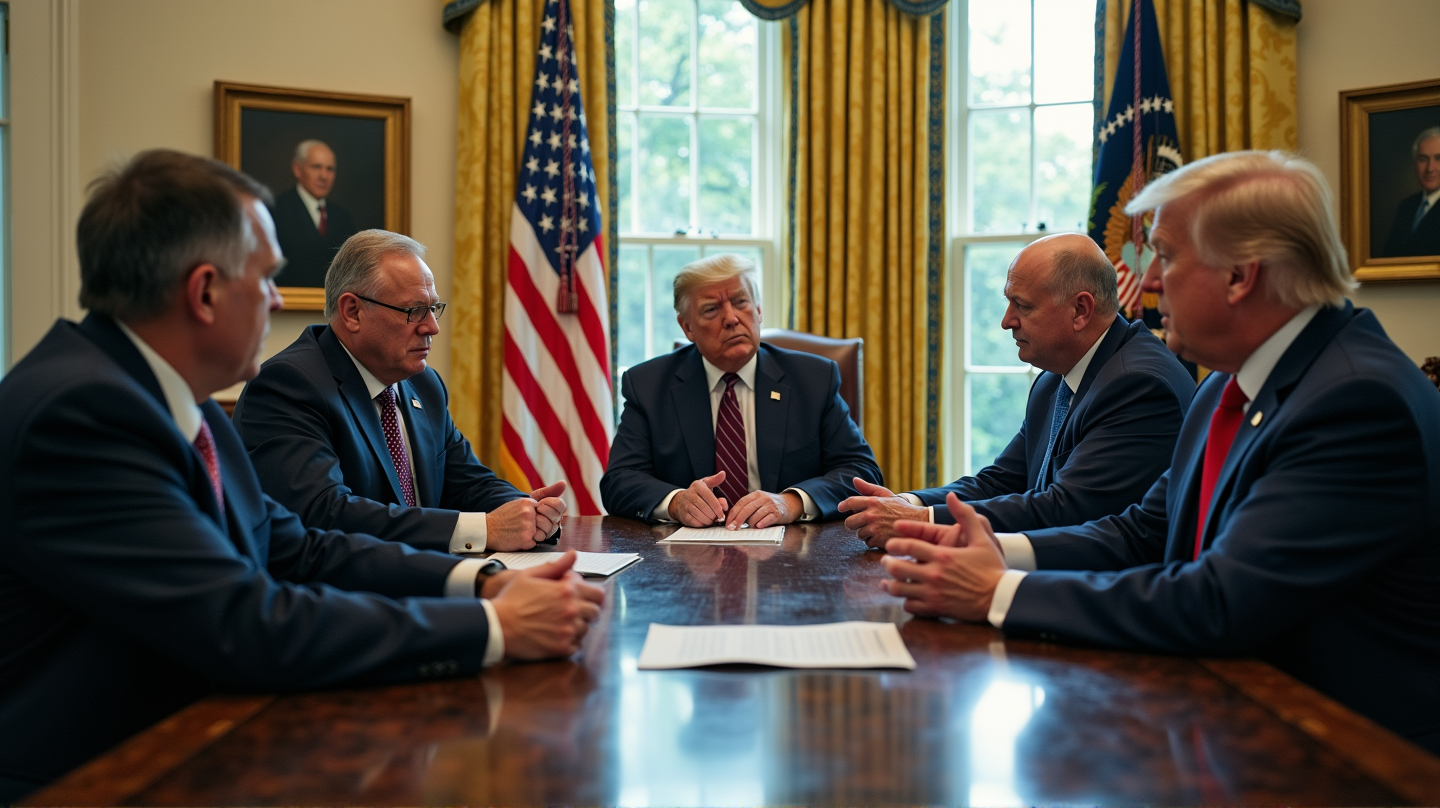Revolution in Drug Pricing: Trump's Transformative Deal with Pfizer
President Trump unveils TrumpRx.gov with Pfizer's pricing deal promising lower drug fees, raising questions on future healthcare costs.

In a landmark announcement that could redefine the pharmaceutical landscape, President Trump introduced a collaborative effort with Pfizer to drastically lower drug prices. Standing at the forefront of this initiative is the new platform, TrumpRx.gov, paving the way for direct consumer access to discounted medications. As the president passionately articulated, this move is aimed at aligning American drug prices with those in other developed nations.
The Vision Behind TrumpRx.gov
The TrumpRx.gov website is envisioned as a direct channel, offering medications at prices that better reflect international standards. By providing a 50% reduction, primarily for consumers without insurance, the initiative seeks to level the playing field; however, specifics on how these reductions are calculated remain undisclosed. According to NPR, significant questions linger regarding the true affordability for average American families.
The Market Dynamics
Unlike countries with government-regulated pricing, the U.S. pharmaceutical market operates on a free-pricing model. This freedom often results in prices only the wealthiest can afford. With TrumpRx.gov, the administration hopes to challenge this status quo, although some industry experts, like Ameet Sarpatwari of Harvard Medical School, express concerns over the superficiality of these reforms.
Corporate Responsibility Meets Public Health
Albert Bourla, Pfizer’s CEO, has emerged as a pivotal figure in this transformation, committing to launch new drugs at harmonized pricing. This strategy, lauded for corporate responsibility, could redefine how companies prioritize public health over profit margins.
Medicaid’s Role
While Medicaid beneficiaries often enjoy low-cost medication options, whether Trump’s plans can deliver more substantial savings remains a topic of debate. Sarpatwari argues that significant changes are needed to realize meaningful reductions in drug costs for taxpayers.
Strategic Pressures and Commitments
The Trump administration has made it clear—noncompliance by pharmaceutical companies would trigger tariffs. Pfizer’s response included a bold investment to rehome drug manufacturing and a three-year tariff grace period, a move that the administration hopes will inspire a ripple effect across the industry.
Future of Global Drug Prices
Beyond domestic borders, the initiative seeks a global reevaluation of drug pricing, aiming for equitable cost distribution among nations. President Trump’s vision to let other countries bear a more significant share of pharmaceutical R&D costs signals a shift towards global parity that could cascade throughout international markets.
The TrumpRx initiative, despite its promises, remains mired in unresolved complexities. The path to affordable drug access may be long and winding, yet this unprecedented step signifies a commitment to altering the pharmaceutical status quo.
As the world watches, the echoes of this initiative might soon blur the lines between aspiration and reality in the realm of healthcare reform.





